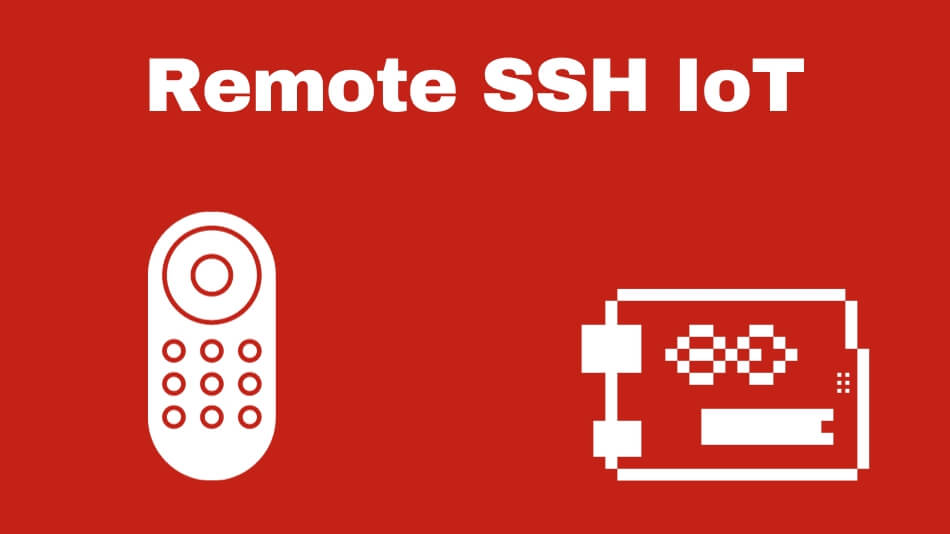Unlocking The Power Of SSH IoT Platform: A Comprehensive Guide
So, you’ve probably heard about IoT (Internet of Things) and how it’s changing the world, but have you ever wondered how secure these devices really are? Enter the SSH IoT platform – a game-changer in the realm of secure communication for connected devices. Whether you're a tech enthusiast, developer, or business owner, understanding SSH IoT platforms is crucial if you want to keep your data safe while embracing the IoT revolution.
Let's face it – IoT devices are everywhere. From smart thermostats to wearable fitness trackers, they're making our lives easier, smarter, and more connected. But with great power comes great responsibility, right? Security is the key to unlocking the full potential of IoT, and that’s where SSH IoT platforms step in. They ensure your devices can communicate securely, keeping hackers at bay and your data protected.
Now, if you're thinking, "Do I really need to dive into this?" – the answer is a resounding yes. Security breaches in IoT aren’t just a headache; they can be catastrophic, especially when it comes to sensitive data like financial information or healthcare records. So, buckle up because we’re about to break down everything you need to know about SSH IoT platforms in a way that’s easy to understand and packed with actionable insights.
What Exactly is an SSH IoT Platform?
Let’s start with the basics. An SSH IoT platform is essentially a secure communication framework designed specifically for Internet of Things devices. SSH stands for Secure Shell, and it’s been around for decades as a trusted method for encrypting data transmissions over networks. When you combine SSH with IoT, you get a powerful solution that allows devices to talk to each other without exposing sensitive information to prying eyes.
Imagine your IoT devices as a group of friends having a private conversation in a crowded room. Without SSH, anyone nearby could eavesdrop. But with SSH, it’s like they’re speaking in a secret code that only they understand. Pretty cool, huh? This level of encryption is vital because IoT devices often handle critical data, from personal health metrics to industrial control systems.
Now, here’s the kicker: SSH isn’t just about encryption. It also provides authentication, meaning it verifies that the devices communicating with each other are who they say they are. This prevents unauthorized access and ensures that only trusted devices are part of the network. In short, SSH IoT platforms are like the bouncers at a high-security club – they keep the bad guys out while letting the good ones in.
Why is SSH IoT Platform Important?
In today’s interconnected world, security can’t be an afterthought. The importance of an SSH IoT platform lies in its ability to address some of the biggest challenges facing IoT adoption. Let’s break it down:
- Data Security: With SSH, your data is encrypted during transmission, making it nearly impossible for hackers to intercept and decipher.
- Device Authentication: SSH ensures that only authorized devices can join the network, reducing the risk of unauthorized access.
- Scalability: As your IoT network grows, SSH can handle the increased number of devices without compromising performance or security.
- Compliance: Many industries have strict regulations regarding data protection. SSH helps you meet these requirements, ensuring you stay on the right side of the law.
Think about it this way: Without SSH, your IoT devices are like unlocked doors waiting for someone to walk in. But with SSH, you’re putting a solid lock on those doors – one that only you have the key to.
How Does SSH IoT Platform Work?
Okay, so now you know why SSH IoT platforms are important, but how exactly do they work? It’s all about creating a secure tunnel between devices. Here’s a simplified version of the process:
- Connection Initiation: When two devices want to communicate, the first step is establishing a connection. This is done using an SSH handshake, where both devices exchange keys to verify each other’s identity.
- Encryption: Once the connection is established, all data transmitted between the devices is encrypted. This means that even if someone intercepts the data, they won’t be able to read it without the decryption key.
- Authentication: SSH ensures that only trusted devices can access the network by verifying their credentials. This prevents unauthorized devices from joining the network and causing mischief.
- Data Integrity: SSH also checks that the data being transmitted hasn’t been tampered with during the process. This is done using checksums and other cryptographic techniques.
It’s like a well-oiled machine, ensuring that every step of the communication process is secure and reliable. And the best part? Most of this happens behind the scenes, so you don’t have to worry about the technical details – just enjoy the peace of mind that comes with knowing your data is safe.
Benefits of Using SSH IoT Platform
Alright, let’s talk benefits. Why should you consider implementing an SSH IoT platform for your devices? Here are a few reasons:
1. Enhanced Security
Security is the number one reason to use an SSH IoT platform. With the rise in cyberattacks targeting IoT devices, having a robust security solution in place is non-negotiable. SSH provides end-to-end encryption, ensuring that your data remains confidential and protected from prying eyes.
2. Cost-Effective
Believe it or not, SSH IoT platforms can save you money in the long run. By preventing security breaches, you avoid the costly consequences of data leaks, such as legal penalties, loss of customer trust, and damage to your brand reputation.
3. Easy to Implement
SSH is a well-established protocol, meaning there’s a wealth of resources available to help you implement it. Whether you’re a seasoned developer or a newcomer to the world of IoT, you’ll find plenty of tutorials, guides, and tools to make the process as smooth as possible.
4. Cross-Platform Compatibility
SSH works across a wide range of platforms and devices, making it a versatile solution for any IoT setup. Whether you’re working with Linux, Windows, or macOS, SSH has got you covered.
Challenges in Implementing SSH IoT Platform
Of course, nothing is perfect, and SSH IoT platforms are no exception. Here are a few challenges you might face when implementing them:
- Complexity: While SSH is powerful, it can be complex to set up, especially for those without a strong technical background.
- Performance Overhead: Encryption and decryption processes can consume significant resources, potentially slowing down your devices.
- Key Management: Managing encryption keys securely is crucial but can be challenging, especially as your network grows.
But don’t let these challenges deter you. With the right tools and support, you can overcome them and reap the rewards of a secure IoT network.
SSH IoT Platform vs. Other Security Solutions
So, how does SSH stack up against other security solutions for IoT? Let’s compare it with some popular alternatives:
1. SSL/TLS
SSL/TLS (Secure Sockets Layer/Transport Layer Security) is another widely used protocol for securing data transmissions. While it shares similarities with SSH, there are some key differences:
- SSL/TLS is primarily used for securing web communications, whereas SSH is more versatile and can handle a wider range of applications.
- SSH provides stronger authentication mechanisms, making it a better choice for IoT environments where device identity is crucial.
2. MQTT
MQTT (Message Queuing Telemetry Transport) is a lightweight protocol designed specifically for IoT devices. While it excels in terms of efficiency, it lacks the robust security features of SSH:
- MQTT relies on external security measures, such as TLS, to encrypt data transmissions.
- SSH provides a more comprehensive security solution, combining encryption, authentication, and data integrity in one package.
Best Practices for SSH IoT Platform
Now that you know the ins and outs of SSH IoT platforms, here are some best practices to help you get the most out of them:
1. Regular Key Rotation
Just like changing your passwords, rotating encryption keys regularly is essential for maintaining security. This ensures that even if a key is compromised, the damage is limited.
2. Use Strong Authentication Mechanisms
Don’t rely solely on passwords for device authentication. Consider using public key authentication or certificates for added security.
3. Monitor Network Activity
Keep an eye on your network for any suspicious activity. Early detection of potential threats can save you from major headaches down the line.
4. Keep Software Up to Date
Regularly update your SSH software to ensure you have the latest security patches and features. This helps protect against newly discovered vulnerabilities.
Real-World Applications of SSH IoT Platform
SSH IoT platforms aren’t just theoretical – they’re being used in real-world applications across various industries. Here are a few examples:
1. Smart Homes
From smart lighting to security cameras, SSH ensures that all your smart home devices communicate securely, keeping your home safe and your data private.
2. Healthcare
In the healthcare industry, SSH is used to protect sensitive patient data transmitted between medical devices and servers, ensuring compliance with regulations like HIPAA.
3. Industrial Automation
SSH secures communication between industrial control systems, preventing costly disruptions and ensuring smooth operations in manufacturing facilities.
Future Trends in SSH IoT Platform
As technology continues to evolve, so does the role of SSH in securing IoT networks. Here are a few trends to watch out for:
1. Quantum-Resistant Encryption
With the advent of quantum computing, traditional encryption methods may become obsolete. Researchers are already working on quantum-resistant algorithms to ensure SSH remains secure in the future.
2. AI-Driven Security
Artificial intelligence is being used to enhance security by detecting and responding to threats in real time. This could revolutionize how SSH IoT platforms operate, making them even more effective at protecting your devices.
3. Edge Computing
As more processing power moves to the edge of the network, SSH will play a crucial role in securing these distributed systems, ensuring data remains protected even as it’s processed closer to the source.
Conclusion
In conclusion, SSH IoT platforms are a vital component of any secure IoT setup. They provide the encryption, authentication, and data integrity needed to protect your devices and data from cyber threats. By understanding how they work and implementing best practices, you can ensure your IoT network remains safe and reliable.
So, what’s next? If you’re serious about securing your IoT devices, it’s time to take action. Start by researching SSH solutions that fit your needs and implementing them in your network. And don’t forget to share this article with your friends and colleagues – knowledge is power, and together we can make the IoT world a safer place.
Have any questions or thoughts? Drop a comment below, and let’s keep the conversation going. Your feedback is invaluable, and we’d love to hear what you think about SSH IoT platforms and their role in shaping the future of connected devices.
Table of Contents:
- Unlocking the Power of SSH IoT Platform: A Comprehensive Guide
- What Exactly is an SSH IoT Platform?
- Why is SSH IoT Platform Important?
- How Does SSH IoT Platform Work?
- Benefits of Using SSH IoT Platform
- Challenges in Implementing SSH IoT Platform
- SSH IoT Platform vs. Other Security Solutions
- Best Practices for SSH IoT Platform
- Real-World Applications of SSH IoT Platform
- Future Trends in SSH IoT Platform
- Shubhashree Sahu Mms The Story That Everyones Talking About
- Lara Rose Leaked The Truth Behind The Headlines

Unlocking The Power Of Remote SSH IoT A Comprehensive Guide

Iot ssh tunnel guyslopi

What Are SSH IoT Devices?